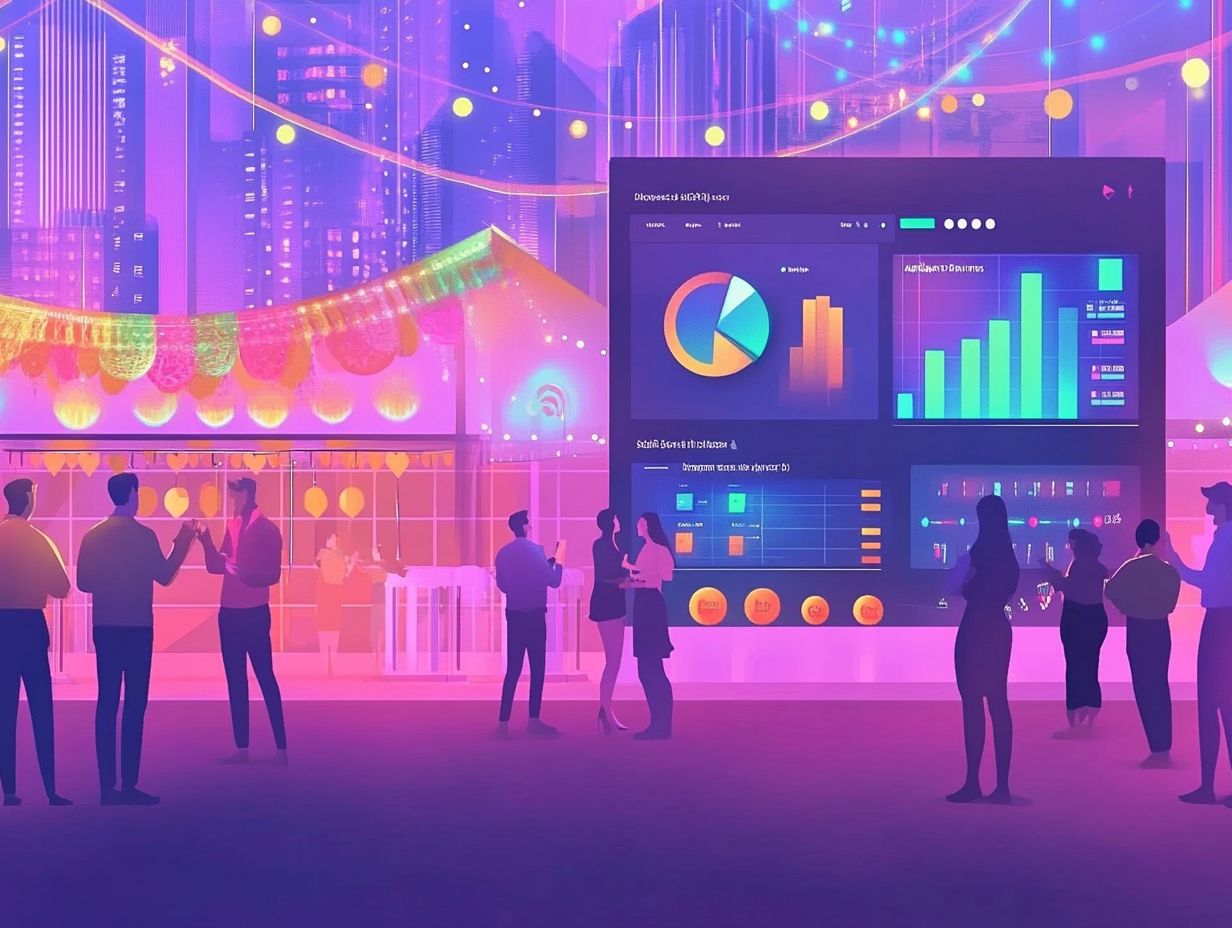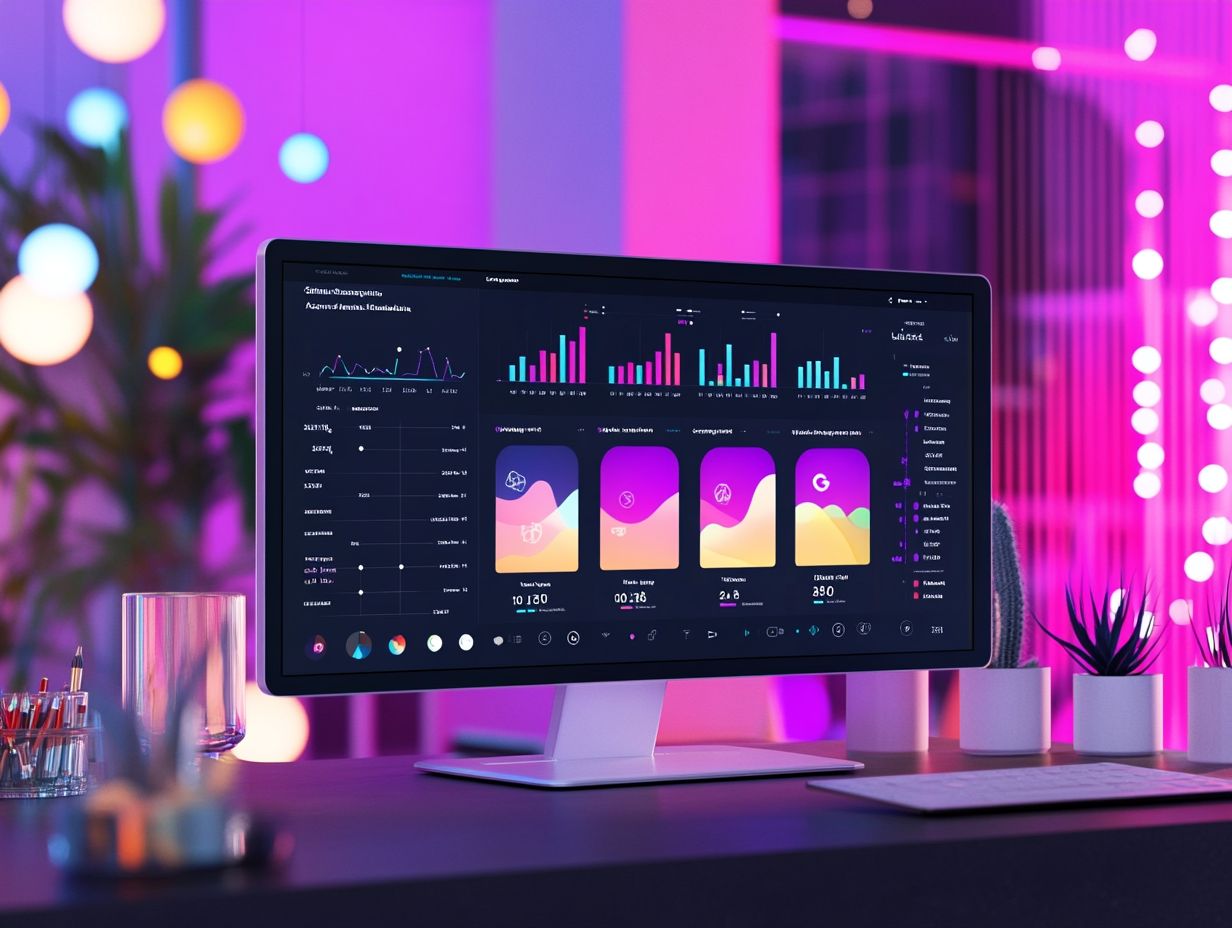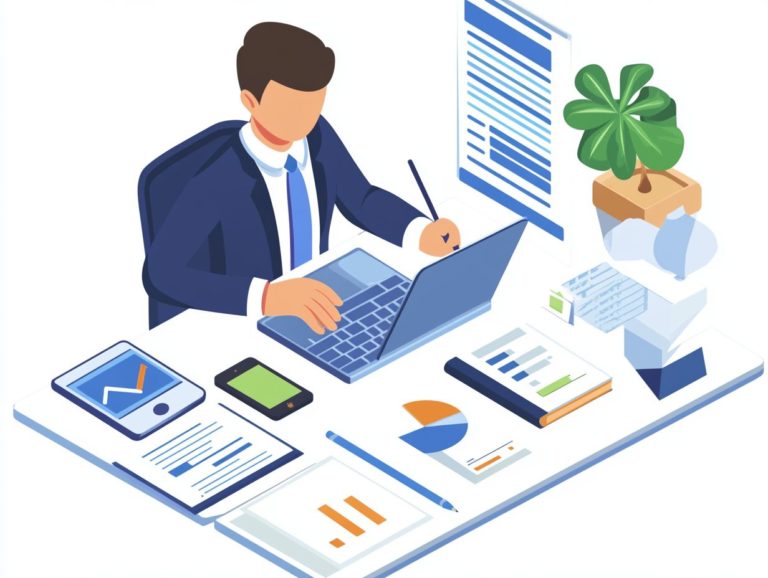26. CRM Solutions for Event Management Firms
In today’s fast-paced event management landscape, mastering customer relationships is essential for your success. Customer Relationship Management (CRM) tools have become game-changers, transforming the way you communicate and manage organizations.
This article delves into the pivotal role of CRM in event management, highlighting its benefits from enhancing customer interactions to streamlining workflows. You’ll also explore the various types of CRM solutions, the factors to consider when selecting one, and the best practices for effective implementation.
Uncover how you can elevate your event management strategy with the right CRM approach!
Contents
- Key Takeaways:
- Benefits of Using CRM for Event Management
- Types of CRM Solutions for Event Management Firms
- Factors to Consider When Choosing a CRM Solution
- Implementing and Utilizing CRM for Event Management
- Frequently Asked Questions
- What is CRM and why is it important for event management firms?
- What features should I look for in a CRM solution for my event management firm?
- How can a CRM solution help with lead management and event planning?
- How can a CRM solution improve customer satisfaction for event management firms?
- Is it necessary for event management firms to invest in a CRM solution?
Key Takeaways:

- Streamline communication and organization with CRM.
- Save time and improve efficiency for event management.
- Strengthen customer relationships with personalized communication.
- Consider cost, functionality, and integration when choosing a CRM.
What is CRM and Why is it Important for Event Management?
Customer Relationship Management (CRM) software is an invaluable asset in your event management toolkit. With CRM solutions for efficient resource management, you can keep track of your interactions with customers and manage your events better. It makes customer interactions easier, enhances communication, and optimizes event workflows, all tailored specifically for you as an event organizer.
Imagine having a user-friendly platform that integrates marketing automation, sales automation, and customer support, enabling you to manage your sales pipeline like a pro. In today s landscape, where customer experience reigns supreme, CRM solutions allow you to analyze data and gain crucial insights that give you a competitive edge in the market.
With robust lead management features, CRM software enables you to capture and nurture potential attendees, ensuring that every opportunity is seized. It tracks interactions and segments audiences, paving the way for personalized marketing strategies that truly resonate with specific groups.
You ll find that it enhances the customer experience by facilitating seamless communication throughout the event lifecycle, from engaging attendees before the event to following up afterward. This support boosts your event planning and helps you adjust quickly!
Benefits of Using CRM for Event Management
Utilizing CRM software for event management provides you with a wealth of advantages that significantly enhance the effectiveness and efficiency of your event execution. For instance, exploring the key features of CRM for event management can lead to deeper user engagement and more meaningful customer relationships.
Streamlining Communication and Organization
Streamlining your communication and organization through CRM software is crucial for achieving seamless event workflows and enhancing team collaboration, ultimately leading to successful event execution. By utilizing a centralized platform, you enable your team members to share updates, assign tasks, and track progress effortlessly, naturally enhancing coordination and minimizing misunderstandings.
With integrated calendars, document sharing, and real-time messaging features, these systems not only facilitate effective communication but also ensure the timely management of critical logistical elements like catering, venue setup, and attendee registrations. This level of organization creates a more cohesive environment, allowing your teams to concentrate on creativity and strategy rather than getting bogged down in administration, resulting in a significantly more efficient workflow.
Improving Customer Relationships
Improving customer relationships is at the heart of CRM software, enabling event management firms like yours to cultivate meaningful client interactions and establish enduring partnerships. Understanding how to use CRM for event management can further enhance these efforts.
By leveraging the power of CRM tools, you can gain valuable insights into customer preferences and behaviors, enabling you to tailor your offerings to meet their needs. This personalized approach not only enhances client satisfaction but also fosters loyalty, as your clients will feel genuinely understood and appreciated.
Effective client management through data analysis allows you to execute timely follow-ups and strategic planning, ensuring that each interaction leaves a lasting impact.
As you analyze customer data trends, you can proactively address concerns and anticipate needs, making it easier to nurture those lasting relationships. Ultimately, utilizing CRM systems transforms client engagement into a dynamic, data-driven dialogue that elevates your business to new heights.
Types of CRM Solutions for Event Management Firms

Event management firms have the opportunity to select from a diverse array of essential CRM tools for event planners meticulously designed to suit their unique requirements.
Whether you prefer cloud-based systems that offer flexibility and accessibility or on-premise options for enhanced control, the choice is yours.
Additionally, you can opt for customizable solutions that cater specifically to your operational needs or off-the-shelf systems that provide quick implementation.
Cloud-Based vs On-Premise CRM
Choosing between a cloud-based CRM and an on-premise CRM requires a keen understanding of their unique features, integration options, and pricing models to find the perfect fit for your event management firm.
For many businesses, this decision often hinges on balancing the need for efficient accessibility with the level of control over data. Cloud-based solutions like Salesforce and HubSpot shine in this regard, offering the freedom to access your information from anywhere with an internet connection.
This accessibility fosters seamless collaboration among teams spread across diverse locations, which is particularly beneficial in the fast-paced world of event management where real-time updates are essential.
Conversely, on-premise CRMs like Microsoft Dynamics or SAP allow for extensive customization and provide greater control over data security. This makes them highly appealing to organizations that prioritize data sovereignty and have the resources to handle in-house maintenance.
Both options present unique strengths, making it imperative to conduct a thorough evaluation that aligns with your firm s operational needs.
Customizable vs Off-the-Shelf CRM
Deciding between customizable CRM solutions and off-the-shelf CRM systems requires a keen understanding of your specific needs, as each option presents unique advantages tailored to various event management strategies.
On one hand, customizable CRM solutions offer unparalleled flexibility, enabling you to tailor features and workflows that align precisely with your operational requirements. This adaptability is particularly crucial for businesses aiming to scale or pivot in response to shifting market conditions.
On the flip side, off-the-shelf systems are designed for quick deployment, often packed with a plethora of ready-to-use features that can streamline your processes without the burden of extensive setup.
By carefully weighing the pros and cons of each approach, you can identify which system best meets your evolving demands, striking the right balance between customization and convenience for optimal event management outcomes.
Factors to Consider When Choosing a CRM Solution
When you re choosing a CRM solution for event management, several key factors deserve your attention.
Consider the cost, the array of features and functionalities available, and, importantly, how well it integrates with your existing tools and systems. These elements will ensure you select a solution that truly meets your needs.
Cost and Budget
Understanding the cost and budget implications of CRM software is essential for your event management firm. Various pricing models can significantly influence your financial resources.
Navigating these pricing structures can truly determine whether your software implementation is a success or leads to unnecessary financial strain. As an event planner, you often find yourself wrestling with which model best suits your business needs.
Subscription-based models provide the flexibility to scale your usage as your events fluctuate throughout the year. On the other hand, a pay-per-use structure may be more advantageous if your CRM needs are irregular, ensuring you only pay for what you actually consume.
One-time purchase options may deliver long-term savings if you prefer ownership without the burden of ongoing fees. Evaluate these models wisely to maximize your budget and align your budgetary constraints with the specific features and scale you require from your chosen CRM solution.
Features and Functionality

Evaluating the features of CRM software is crucial for ensuring it meets your specific needs in event management, particularly regarding analytics capabilities and task automation.
These tools not only streamline your planning processes but also enhance communication among your team members and stakeholders. An effective CRM system should offer robust data analysis features, allowing you to segment attendees and identify trends.
This capability makes it easier to tailor your marketing efforts with precision. Automation tools can elevate your efficiency by taking care of repetitive tasks, such as follow-up emails and registration confirmations.
This frees you to focus on more strategic elements of your events. Customer support functionalities are vital, ensuring you have access to assistance whenever needed, fostering a more productive event management experience.
Integration with Other Tools and Systems
The ability of CRM software to connect with other tools and systems is crucial for event management firms, as it significantly enhances overall operational efficiency, especially when using the best CRMs for event planning businesses.
Seamlessly connecting with marketing tools, project management software, and other essential business solutions streamlines your processes. Such integration automates tasks while improving data accuracy, allowing your teams to collaborate more effectively.
When all systems communicate fluently, you benefit from a cohesive experience that enables better decision-making and strategic planning. This holistic approach keeps client interactions and project timelines synchronized, ultimately driving higher satisfaction rates and successful event outcomes.
Prioritizing these integrations elevates your firm s ability to respond swiftly to changing demands and maximize the utilization of valuable resources.
Implementing and Utilizing CRM for Event Management
Successfully implementing and utilizing CRM software for event management requires meticulous planning, thorough training, and a commitment to best practices. These elements enhance its features for optimal benefit.
By giving proper attention to these components, you can elevate your event management process to new heights.
Training and Onboarding
Effective CRM training and onboarding are essential for enabling you and your team to navigate the user-friendly platform with ease.
When you invest in comprehensive training sessions, you equip your team with necessary skills while nurturing a culture of collaboration and efficiency.
Tailoring onboarding programs to meet specific roles, combined with interactive elements like hands-on workshops and guided tutorials, significantly elevates the learning experience.
Incorporating regular feedback loops allows you to pinpoint areas for improvement, fostering continuous growth. By prioritizing effective training strategies, your team will be better positioned to track progress and collaborate seamlessly.
This ultimately enhances productivity and satisfaction while using CRM tools.
Best Practices for Maximizing Benefits
Implementing CRM best practices is crucial for maximizing benefits. These practices enhance user engagement and maintain a customer-focused approach within your event management firm, especially when using the top 5 CRMs for event management.
To truly unlock the potential of your CRM software, regularly update the platform. Incorporating the latest features and security enhancements will streamline your operations.
Establish feedback loops to gather insights from your team members. This ensures continuous improvement of processes and boosts user satisfaction.
Leverage analytics to track customer interactions. This data shapes targeted marketing strategies and personalized client experiences.
Embrace these practices now to deepen client relationships and stand out in a competitive landscape.
Frequently Asked Questions

What is CRM and why is it important for event management firms?
CRM stands for customer relationship management. It is a strategy used to manage interactions and relationships with customers.
For event management firms, having a CRM solution helps streamline processes and improve customer satisfaction.
What features should I look for in a CRM solution for my event management firm?
Key features to consider when choosing a CRM solution include lead management, project management, email marketing, and customer segmentation.
It’s essential to select a solution that meets your business’s specific needs.
How can a CRM solution help with lead management and event planning?
A CRM solution provides a centralized system to track and organize leads. It automates lead nurturing and follow-up processes.
Additionally, it assists in creating and managing event checklists, sending invitations, and tracking RSVPs.
How can a CRM solution improve customer satisfaction for event management firms?
A CRM solution enhances customer satisfaction by offering better communication and collaboration capabilities. It provides personalized customer experiences and efficient support systems.
It also helps identify and address customer concerns in a timely manner.
Is it necessary for event management firms to invest in a CRM solution?
While it’s not strictly necessary, investing in a CRM solution greatly benefits event management firms. It enhances business operations and increases customer satisfaction, as highlighted in the role of CRM in event planning success.
Ultimately, this investment can lead to greater success and growth for your company.
Start enhancing your event management today with the right CRM solution!






